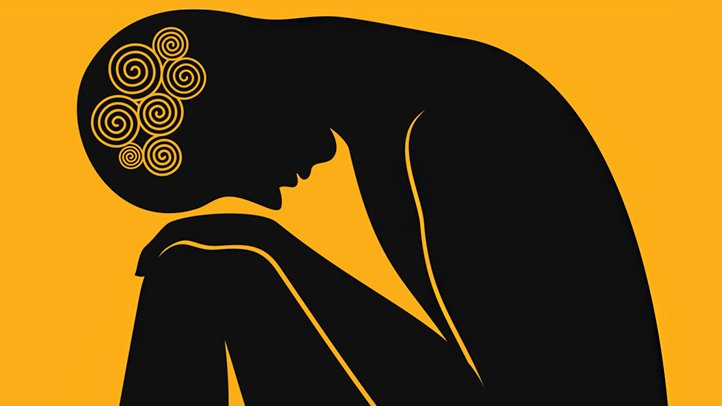By Mimansa Singh
We all are familiar with the feeling of uneasiness and worry, especially in situations like appearing for interviews or exams. Certain phases in life, that involve transition can also be stressful and could lead to short spurts of anxiousness, which is very normal.
However, for some of us this emotion does not fade away and grips our mind with recurrent negative thoughts.
There is a constant parallel disturbing train of thoughts that keep running in our mind even while attending to other things making it difficult for us to fully focus on basic aspects of life. The feeling is so intense that it takes control over our body.

Some of the common signs and symptoms that are very commonly seen are palpitations, paced heartbeat, sweating and restlessness. Such pervasive worry, apprehension, negative patterns of thought process accompanied by physiological changes are characteristic of an anxiety disorder.
Why do I suffer from Anxiety Disorder?
Anxiety is one of the more common mental illnesses. According to WHO statistics, globally more than 260 million people suffer from some form of anxiety disorder. The basic cause for an anxiety disorder is an interaction between biological, psychological and social factors. The imbalance of the chemicals in our brain causes one to think and react in a certain way. Psychosocial factors like negative schemas about oneself, experiencing a traumatic event or loss, prolonged stressful environment at home or at workplace also contribute or can act as precipitating factors for anxiety disorder.

How to overcome anxiety: Is there hope for me?
Despite the large number of people suffering from anxiety disorder, only a small percentage seek treatment due to lack of awareness. It is important to identify the signs and symptoms of anxiety and seek treatment from an expert at the earliest.

Identify the triggers of your anxiety
It is important to identify the various triggers to the anxiety episode whether social, situational, and specific to an event or object. This helps you to be more aware about what triggered the anxiety episode and can be dealt with accordingly.
Acknowledge Your Fears & their Sources
One of the basic natures of anxiety disorder is that it pushes you to avoid the situations, object or people that could trigger the anxiety episode. This is a natural response that you engage in to get relief from the anxiety not realizing that the relief is only temporary. Do not avoid the source of anxiety.
Acknowledge that you are feeling anxious & gradually expose yourself from the least fearful to most fearful anxiety provoking situations.
Being aware of your strengths and limitations can help you develop a more adaptive and positive belief system and this builds a more reassured sense of self.
Tools & Resources: Empower Yourself to Overcome Anxiety
Here are some tools & resources that you can use to empower yourself, when you are faced with the big question, ‘How to overcome anxiety?’
- Relaxation techniques: Deep breathing stimulates the parasympathetic nervous system and brings in the calmness slowly by increasing the oxygen supply in the brain.
- Challenge your negative thoughts: Once seen a lion in the room, the mind continues to imagine the lion in that room. That’s the intensity of fear you can experience if you are suffering from anxiety disorder. It is important to test the evidence of your negative thought patterns as you can often tend to imagine the worst and reach to a conclusion which may not be so.
- Be mindful: Anxiety related thoughts can often make it difficult for you to attend to the task at hand. Treating these thoughts as just thoughts in the background and making the effort to be mindful of your task and surroundings at present can certainly help in feeling better.
- Work-Life Balance: Maintaining a healthy lifestyle with adequate sleep, diet, exercise and a routine always act as protective factors to cope better with stress and anxiety.
If Anxiety is Debilitating Your Life, Please Seek Professional Help
Despite following some of the basic tips to manage stress and anxiety, the anxiety can persist. Do not hesitate to reach out to an expert. It is important to see mental illness like any other medical ailment that requires intervention. There is ample evidence to suggest the efficacy of psychotherapeutic approaches like cognitive behaviour therapy along with pharmacological intervention as the effective way to treat anxiety disorder.
About the Author

Ms. Mimansa Singh Tanwar, is Clinical Psychologist and the Coordinator of the Fortis School Mental Health and Clinical Psychology Program with the Department of Mental Health and Behavioural Sciences. She has been practicing in the field of Psychology for the last 8 years and has been integrally involved in working with children and adolescents. Her passion is in working towards enhancing the mental health of school aged children. She has been also been conducting numerous workshops and seminars over the years with students, teachers and parents. She also conducts workshops in corporate on lifestyle and stress related issues and has keen interest qualitatively working towards mental well-being in organizations. Through media she has been working towards making Mental Health a priority for the young members of our society.